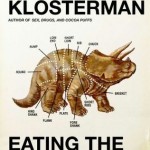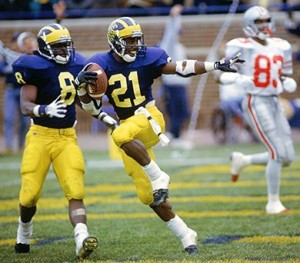




Immigration Polling
While President Obama continues to work toward immigration reform (or talk about it, anyway), a disturbing poll released a few days ago shows that this may be a moot point, at least for the time-being.
Quinnipiac University recently conducted a national poll asking about immigration issues and how it might be impacting Obama’s polling numbers (which, admittedly, are less than impressive). From the look of things, the poll seems to be legit (as opposed to the joke of a polling organization that is Rasmussen). It supports a lot of traditional opinions about immigrants and enforcement of immigration laws, but there were definitely a couple of disturbing trends.
First, the usual suspects. According to the Los Angeles Times, the poll had a “strong anti-immigrant tilt, favoring, by 68% to 24%, stricter enforcement of immigration laws rather than integrating illegal immigrants into society.” This is problematic, but by no means does it stand out. Traditionally, Americans have always favored reducing the number of immigrants entering the country. Seriously, there could be one immigrant entering the country per year, and it would still be two too many.
As if that wasn’t a big enough problem, Americans also will overestimate the number of people of color in this country, along with the number of undocumented immigrants. And I’m not just saying they’re off by one or two. Researchers call it “innumeracy,” and it is evident when Whites are asked to calculate the percentage of the population that is Black, Latino, and Asian. The most recent of these studies was conducted in 2005 by Richard Alba, Ruben G. Rumbaut, and Karen Marotz in their article, “A distorted nation: Perceptions of racial/ethnic group sizes and attitudes toward immigrants and other minorities.” They found that a number of Whites actually estimated that, in the United States, Whites were in the minority (already!) and that the rest of the country was 30% Black, 22% Latino, and 16% Asian. For me, the kicker was that they estimated 12% of the country was American Indian (and all I could think about was the Chris Rock routine–after all, around the time of this study American Indians clocked in around .17% (yes, point one seven percent–I did not mess up the decimal point)). And yes, for those of you keeping track, that number of people of color combined with the estimated number of Whites does add up to 100 percent.
Along the same lines, not only do Americans over-estimate the number of immigrants in the country, but they ridiculously over-estimate the number of undocumented immigrants in the country. In fact, in an extensive survey by the PEW Research Center for the People & the Press, respondents stated that most immigrants were in the United States illegally. (For the full report, click here) Seriously. Even though, according to the census only about 30% of foreign-born immigrants are here illegally, Americans (who already believe there are far more immigrants here than there actually are) think that “most” immigrants are here illegally. It still shocks me.
However, by that reasoning, it’s not terribly surprising that the Quinnipiac University survey revealed that there was so much concern about needing to do something about immigration enforcement. If I’m a citizen and I believe crime is so bad that as soon as I walk out the door I’m going to be gunned down by street thugs a la Death Wish 3, then of course when someone asks me about my concerns, I’m going to say that we need more police and less crime. It’s human nature, however flawed the logic might be.
Now, what really threw me off was this result:
“The poll, carried out during the first week in September, found that, by 48% to 45%, an end to the constitutionally guaranteed practice of granting U.S. citizenship to children born of illegal immigrants.”
This absolutely shocked me. Contemporary U.S. immigration policy has almost always worked to keep families intact and to not punish children from their parents’ actions. The fact that so many people might actually be opposed to allowing children of undocumented immigrants to be citizens is just unbelievably devastating.
I could only come up with two possible suggestions as to how these results came to be:
1) Again, I think it all comes back to estimations. I’m wondering how frequently this happens (undocumented immigrants giving birth so their children can be citizens), and I can’t imagine it’s often. After all, that’s a long, dangerous journey to make, especially if someone is pregnant. It could be that this just doesn’t happen as frequently as people envision.
Along the same lines, I wonder if perceived intent has something to do with it. Are these respondents picturing a pregnant Latina pulling herself onto the U.S. side of the Rio Grande and immediately giving birth? Or are they picturing a husband and wife living in the U.S., deciding to have kids because that’s the next step in their relationship?
2) I also wonder about the wording of the question. It reads:
“As you may know, under our constitution and current laws, all children born in the United States are automatically granted citizenship. Do you think we should continue to grant citizenship to all children born in the US or do you think this should be changed so children of illegal immigrants are not automatically granted citizenship?”
I wonder about the phrasing “automatically granted.” I think most people born in the United States believe that they “deserve” to be here, and I think that they somehow feel that they have earned the right to be citizens. Plus, given the cultural stubbornness of the powerful Horatio Alger mythology, I think the idea of someone just being “automatically granted” anything is bound to be challenged.
I’m not saying the poll was conducted incorrectly–I just wonder how much influence these kinds of factors can have.
College GameDay
Every college football Saturday, I have something of a ritual. Sure I watch every game I possibly can, Tivo-ing a number of them that are close but I can’t watch right away. I have to have some kind of pizza (preferably Little Caesar’s) or wings (if I’m watching the game at a bar). I wrap up the day with College Football Final, putting up with Mark May trolling with his “angry black man” routine so I can see what the experts are saying and watch Rece Davis be one hell of a broadcaster.
But the day of football cannot begin until I watch College GameDay. It’s two hours of heaven (I haven’t gotten into the 8:00 – 9:00 hour yet, but I’m sure it’s wonderful too) as I watch the experts break down every conference and every game, living the dream job of a million college football fans. Fowler (and his biting yet disguised sarcasm) keeps things moving, Corso plays the fool (albeit an enthusiastic one), Herbstreit brings the facts, and Desmond says stupid shit. Okay, maybe I’m still a little bitter.
Still, the show is hypnotic, energetic, and just starts the day off right.
Needless to say, I was disappointed to see that this week, the GameDay crew will be heading out to the Auburn/Clemson game. I’m not the only one who was bothered by this (Texas Tech fans and Arizona fans were also annoyed), though they tended to place the blame at the ol’ bias angle (“No one respects us!”). However, my man Pete Fiutak (arguably the best college football columnist out there) had an interesting take on the situation:
“College GameDay has done the near impossible by not going fluffy and continuing to be terrific despite adding an extra hour. Its importance and its presence as an influential force continues to grow, and in a sport where perception and hype mean everything when determining a national title and BCS slots, it really does matter what the show chooses to showcase. The problem, now that ESPN has ponied up the billion dollars to showcase the SEC, is that GameDay is quickly becoming a three-hour informercial for the conference. In the opening weekend the show did its thing from Atlanta with LSU and North Carolina squaring off. Fine. Last week, the show came from Tuscaloosa for the Penn State – Alabama showdown. Okay. This week there isn’t a big signature game to highlight the weekend, so it would be a perfect time for the show to put the spotlight on a different part of the college football world to give fans a taste of the landscape. Iowa is playing at Arizona in a showdown of two ranked teams; Tucson would be different. Going to Michigan State for the Notre Dame showdown would be a slice. But instead, the show is going to Auburn for the game against Clemson. Another SEC school, another three hours of SEC screaming, and yet another way of hyping up the product so it can be sold along the family of networks and in the heads of the pollsters.”
I’m not one for conspiracy theories, but I really feel like Fiutak makes an excellent point. It’s a slow week for college football, no doubt about it (especially when compared with last weekend). I can understand not wanting to go to Texas-Texas Tech this weekend–the Red River Shootout is two weeks away, and covering Texas twice in three weeks would not be ideal. However, as Fiutak says, Arizona/Iowa would be a great matchup (personally, I think they’re waiting to cover Ohio State/Iowa, which is, in my humble opinion, the only possible reason for missing Ohio State/Miami (and not a very good reason at that)). I’m not sold on Michigan State/Notre Dame, but Washington/Nebraska could make for an interesting storyline.
I’m sure no malice was intended and it’s all about synergy. Hell, maybe Clemson/Auburn will be a great game! Then again, that would be completely ignoring last week (Auburn eeking out a win over Mississippi State (!) and the ACC crashing and burning on the national stage).
I think what bothers me the most is that, right now, I don’t think the SEC is that fantastic. They’ve definitely been dominant the last few years (and as a true Buckeye fan, that pains me to say). But this year (so far, and I’ll probably regret saying this), I’m underwhelmed. Alabama is a fantastic team, no doubt about it. Florida may pull it together, or it may pull a 2007 on us and drop 4 games. Ole Miss blows (Jacksonville State???), Georgia was defeated (by South Carolina in a close game), Arkansas is dangerously overrated, and Tennessee just got 48 points dropped on them.
But these teams are being propped up by the mythology of the SEC, the same way that people still go on and on about Notre Dame or about the Florida State/Miami resurgence. But here GameDay is actively reinforcing this myth. As GameDay, you can go anywhere in the country to cover any game. Cover three SEC games in a row and, in the minds of your audience, that must mean the SEC is worthy of that coverage. How worthy remains to be seen, but, until GameDay starts traveling elsewhere, we’ll never know.
Chuck Klosterman
As I recently wrote, Chuck Klosterman (essayist, pop culture observer, and all-around badass writer) is my new (albeit unsuspecting) writing mentor, but he might also turn out to be some sort of sarcastic xen guru as well. His words have really stuck with me; one set in particular.
Allow me to quote at length from Chuck Klosterman’s Eating the Dinosaur:
“There’s one kind of writing that’s always easy: Picking out something that’s obviously stupid and reiterating how stupid it obviously is. This is the lowest form of criticism, easily accomplished by anyone. And for most of my life, I have tried to avoid this. In fact, I’ve spent an inordinate amount of time searching for the underrated value in ostensibly stupid things. I understand Turtle’s motivation and I would have watched Medellin in the theater. I read Mary Worth every day for a decade. I’ve seen Korn in concert three times and liked them once. I went to The Day After Tomorrow on opening night. I own a very expensive robot that doesn’t do anything. I am open to the possibility that everything has metaphorical merit, and I see no point in sardonically attacking the most predictable failures within any culture.”
This is wonderful from a writing perspective, if nothing else because he literally could have chosen anything from his anecdotally-filled life as a critic, but these perfectly explain his point. However, moving beyond the mechanics, this passage is also kind of genius.
Like Klosterman, I also despise reiterating stupidity, especially for audience approval. It’s like cherry-picking extremist quotes from the political spectrum to gain support for your own cause. And it absolutely infuriates me when this is done with humor.
Once, on my old blog (which was awesome, by the way, but also not entirely appropriate for a Website that also holds my curriculum vita…and my name), I commented on one of the one brazillion Internet top 10 lists (most kind of blend together) where the author made multiple jokes about John Tesh music in the guise of being extreme. Here is what I wrote:
“I hate this: People have the chance to slam someone down and, instead, they wuss out and go with a safe joke. The result is a slew of jokes that sound as controversial as a Jay Leno monologue. Take Gigli…please. There, see how stupid and lame I sound? Are the rabid Gigli fans going to attack me? Of course not–it’s a safe joke. However, if I were to replace Gigli with an honest response like Episode III or LOTR: The Fellowship of the Ring, now we’re cooking with butane. This guy could have picked any band he hated (the more popular, the better), but he didn’t and somehow managed to sound even lamer than he already is.”
I feel strongly in this aspect, but at the same time I can’t shake Klosterman’s approach to his writing (and, most likely, his life). He uses practically everything as a way of examining an artist, a concept, a perceived understanding, or even society. His statements about movies are not based in anger and hate, but rather from a technical side or story construction.
I have to believe that Klosterman hates more than just laugh tracks, but I’m sure it’s nothing on the level of my pet peeves. On the one hand, I love caring passionately about most things (one way or the other) because it means I care and I’m paying attention. Then again, at what point does my reactionary response become…well…moot because it’s so clearly reactionary.
Much to ponder…
Summer Reading
This summer was insanely busy–I taught Introduction to Mass Communication in June, had emergency surgery on my gall bladder six days before my wedding in July, and two conferences (and my honeymoon) in August. It was hectic to say the least.
That said, while on my honeymoon I finally had a chance to do some reading. Some good, old-fashioned reading. Because it was vacation, I didn’t read any scholarly articles or school stuff–it was all just books I felt like reading. It was wonderful. You read so many books for graduate school and so many articles to write publications that reading for fun becomes something relatively rare. It’s not horrible because I’m actually interested in what I study, but I definitely miss run reading–and this summer only made me miss it more.
I read five books in August (most of them on the honeymoon where we had plenty of time for beach-reading) and I was amazed how much I loved them. I figured it couldn’t hurt to mention them just in case anyone was looking for something to check out. So here they are:
 COLUMBINE by Dave Cullen
COLUMBINE by Dave Cullen
Without a doubt, one of the best books I have read in years. Published by a company called “12” (because they only publish 12 books a year), Cullen’s book explores the truths about what actually happened at Columbine while trying to (and succeeding in) answering the all-important question of why this tragedy took place. Cullen actually reported on the infamous school shooting, and his writing is absolutely top notch: strategic use of detail, fast-paced, and utterly, completely compelling. I absolutely tore through the book and have literally recommended it to everyone that I know.
 FORDLANDIA: THE RISE AND FALL OF HENRY FORD’S FORGOTTEN JUNGLE CITY by: Greg Grandin
FORDLANDIA: THE RISE AND FALL OF HENRY FORD’S FORGOTTEN JUNGLE CITY by: Greg Grandin
I’m a sucker for a great history book, especially if it’s well-researched. This one is great because the research is so meticulous, resutling in an intriguing book. Decades ago, in an effort to make the Ford company more independent, Henry Ford purchased a huge tract of land in Brazil to farm rubber trees. While importing rubber, Ford was also interested in exporting his vision for Utopia, and “Fordlandia” was born. This city in the middle of a jungle is the central to the book, though it also archives Ford’s own downward spiral (mirrored by the city’s downfall). The book could have been dry, but is filled with rich anecdotes and a fascinating portrayal not only of Ford, but of cultural arrogance (and obliviousness).
 EATING THE DINOSAUR/SEX, DRUGS AND COCOA PUFFS By: Chuck Klosterman
EATING THE DINOSAUR/SEX, DRUGS AND COCOA PUFFS By: Chuck Klosterman
As a writer, I like to think that, as I grow older, I find new authors to emulate and idolize as a way of making sure my technique and style do not become stale. Chuck Klosterman’s writing is my new Everest. Both of these books are a filled with essays dealing with…well…that’s tough to say. Klosterman uses pop culture phenomena as a platform for what social phenomena they represent. I really only had a total of two essays I disliked, and the rest were fascinating. Klosterman has had this amazing life (music and movie critic for a number of publications) but, more importantly, he has an amazingway of looking at events, behavior, mental processes, and, well, everything. It’s almost completely non-judgmental–so much so that I’m actually writing another blog entry just on that aspect of his work.
 SWAN SONG By: Robert McCammon
SWAN SONG By: Robert McCammon
Ever since I entered graduate school (wow…seven years ago), I’ve really had no patience for fiction books. As for why, I’m sure it’s a variety of reasons. I read nonfiction for research and it tends to be pretty interesting (I study race and ethnicity), so it’s not like there’s a gigantic void of good readings in my life. From a pragmatic standpoint, what I find interesting tends to be what I research, and so reading nonfiction can be double-duty; I’m reading for research and I’m reading for enjoyment. However, I’ve always had a soft spot for post-apocalyptic writing (it was a huge phase for me during high school, starting with Alas, Babylon and ending with Farnham’s Freehold), and so I figured I’d give Swan Song a shot. And I’m glad that I did.
Swan Song is basically The Stand, only instead of a plague, it is nuclear holocaust that destroys civilization. It is a story about survivors and how those survivors ultimately end up in a showdown of good vs. evil. However, the characters are wonderfully written, the visuals are imaginative, the pacing is fast, and it truly is a masterpiece. The two main things I liked? While “evil” played a significant role, there was little mention of God, Jesus, scripture, and a minimal amount of prayer–the author truly let the humans battle for humanity, rather than having the survivors serve as pawns for higher powers. Secondly, I loved that it was such a dark book–unlike something like The Stand, where everything (except 99% of the population) is intact, in Swan Song the human population is practically obliterated and the nuclear attack decimates the landscape. THis is definitely worth a read.
Even if you only check out one of these books, I’m certain you won’t be disappointed. It was wonderful to have some time to read again, and I don’t think I could have asked for a better combination of books to get back into things.
Overrated?
This is the problem when you get so caught up in user comments as a way to try and connect with your audience in the laziest way possible. The result? Utter pablum.
The most recent example of this comes from Entertainment Weekly. As evidenced by my posts, I absolutely love movies, and I thoroughly enjoy articles discussing them (the Onion‘s AV Club and Den of the Geek are consistently intriguing). So, imagine my joy when I saw EW’s article entitled “20 ‘Classic’ Movies You Call Overrated.”
Now this had potential. It’s the ultimate Internet argument article because you can argue over what is considered a classic and whether or not those movies are overrated. That’s gold! Well, at least it is in theory…
See, much like when CNN reads Twitter posts out loud as a way of establishing some sort of coolness/technology credibility with its nonexistent young viewers, many pieces are doing the same thing with reader comments. Because, you see, this isn’t really an article at all–it’s just what you get when you Google “classic movie” and “stupid.”
Check it: For Lawrence of Arabia, here is the insightful commentary on the Oscar-winning film:
“Growing up, I loved watching old movies and heard this to be epic. Was never on TV, couldn’t find it to rent. Finally came on PBS, commercial-free. I was so excited. I fell asleep 3 times. Every time I woke up, just more walking on sand. — mlk”
No, that’s not a comment from the article, it is the article (at least the part about Lawrence of Arabia). First off, someone alert the fucking press, because Martin Luther King, Jr. is back from the dead! Secondly, that’s it? That’s your critique? It was boring? Nothing about the acting, the pacing–just that it was boring?
Here’s another, this time for “The Wizard of Oz“:
“Totally agree about The Wizard of Oz. Those flying monkeys made me flee the room screaming as a child; still hate that movie. — HarrietMck”
First of all, Harriet, what do you totally agree with? I’m confused. Secondly, what exactly is your critique? The monkeys made you leave the room…when you were a kid. So do they still scare you? Is it just the bad memory?
This is lazy “journalism” at its worst. Now I’m wishing I worked for Entertainment Weekly–hell, I can do this!
Here’s my newest article (this time without the obnoxious slideshow):
11 “Good” Movies You Call Crap
11. Forrest Gump – Lame
10. Star Wars: Episode 1 – Stupid
9. Erin Brokovich – Awful
8. Transformers – Dumb
7. Armageddon – Dreadful
6. Twilight – Piss
5. The Village – Repulsive
4. Ocean’s 12 – Idiotic
3. Spiderman 3 – Rough
2. One Missed Call – Vapid
1. Crash – Foolish
Pulitzer Prize, here I come!
